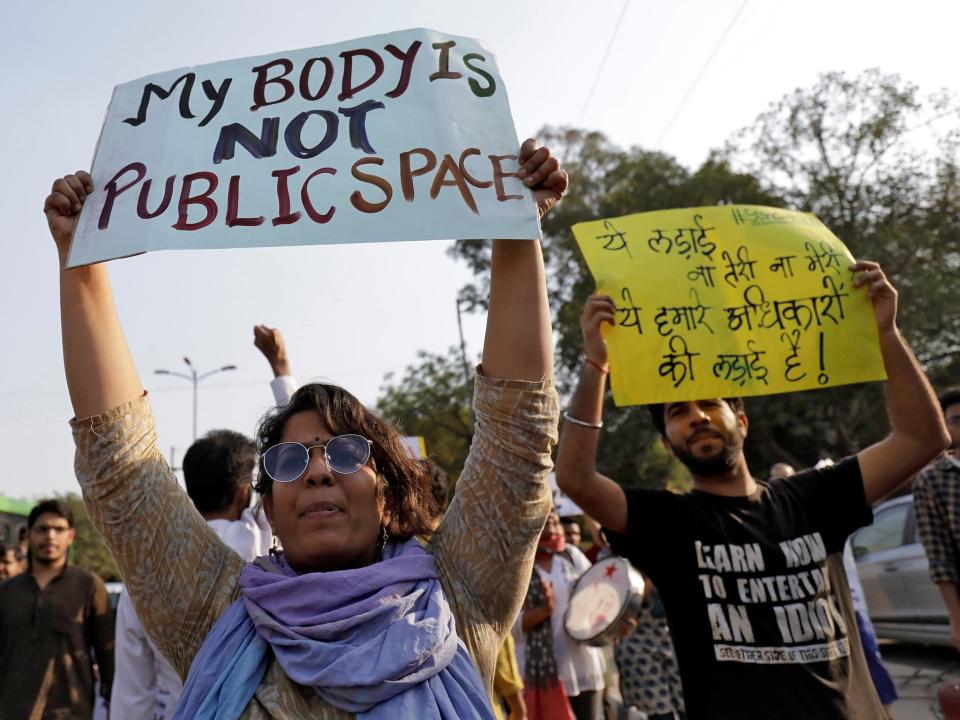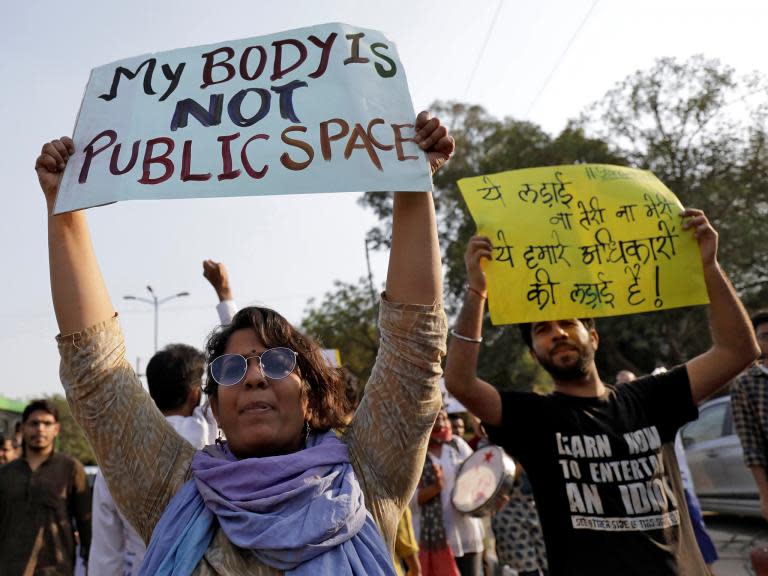Indian government under fire for arresting student protesters instead of taking action against ‘sex blackmail gang’
The government in India’s southern state of Tamil Nadu has come under fire for arresting student protesters calling for a fair investigation into an alleged sex blackmail gang.
A wave of student protests flared up after videos showing sexual assaults on college girls were posted on the internet.
Fury mounted after police said the footage was part of a plot by an alleged sex blackmail gang. They said the group of men were using the videos to try to befriend college students on social media, meet them to commit sexual assaults, and then use video footage to blackmail them for money.
Around 30 college students from the town of Pollachi, who held a protest on Sunday calling for a proper investigation, were detained by the police.
A leading figure in the Communist Party of India (Marxist) (CPM) argued the state government was arresting student protesters rather than taking action against perpetrators in the sexual assault case.
“The CPM demands that the students be released and the cases against them be dropped,” politician G Ramakrishnan told reporters in Pollachi on Sunday.
He added: “There should be a Central Bureau Investigation probe into the issue and it should be done under the supervision of the Madras high court.”
Campaigners have warned that victims of the alleged sex blackmail gang may not come forward after the name of a victim was made public by government officials.
The woman’s name was contained in an official document published by the Tamil Nadu government. It is illegal in India to report the name of a sexual assault victim.
Mr Ramakrishnan welcomed the high court’s decision to come down on police officials for revealing the name of the accuser and order a payment of 2,500,000 rupees (£27,600) to the survivor but hit out at the state for failing to respond.
Last week, police said they arrested four men in the town of Pollachi after a 19-year-old woman lodged a complaint against them.
The woman told police she was sexually assaulted by a group of men inside a car, one of whom she knew. She said the men trapped her, removed her top and filmed her.
The accused men allegedly warned her they would release the video if she did not cooperate with them. She said they then stole her £220 gold necklace.
Police are now trying to identify other victims based on video footage recovered from the mobile phones of the four accused men.
The teen only gathered the courage to tell her family what had happened almost two weeks later, after the men had repeatedly attempted to extort money from her.
It has been claimed this attack was just one in a series committed by the gang, with local media suggesting they have been targeting women since 2013.
Student protesters and women’s rights campaigners called for police to quickly investigate the assaults and provide protection for the victims, many of whom have since been identified through the videos.
“Watching the video of a girl begging her assailants to let her go was chilling,” said Captain Prabhakar, a 21-year-old graduate student, who took part in a protest in the city of Coimbatore.
According to government data, the number of crimes against women reported to police in India rose by 83 per cent from 2007 to 2016. Four rape complaints were reported every hour in 2016, the data showed.
Violence against women is a widespread problem in India – more than 50 per cent of Indian men and women still believe that wife-beating can be justified.
Students from Bharathiar University, in the major city of Coimbatore, held a protest in front of the university campus on Sunday evening. They called for the perpetrators in the case to face stern punishment.
The Pollachi police used force against students who staged a protest in front of the Pollachi municipality office last Wednesday, according to The Times of India.

 Yahoo News
Yahoo News 

